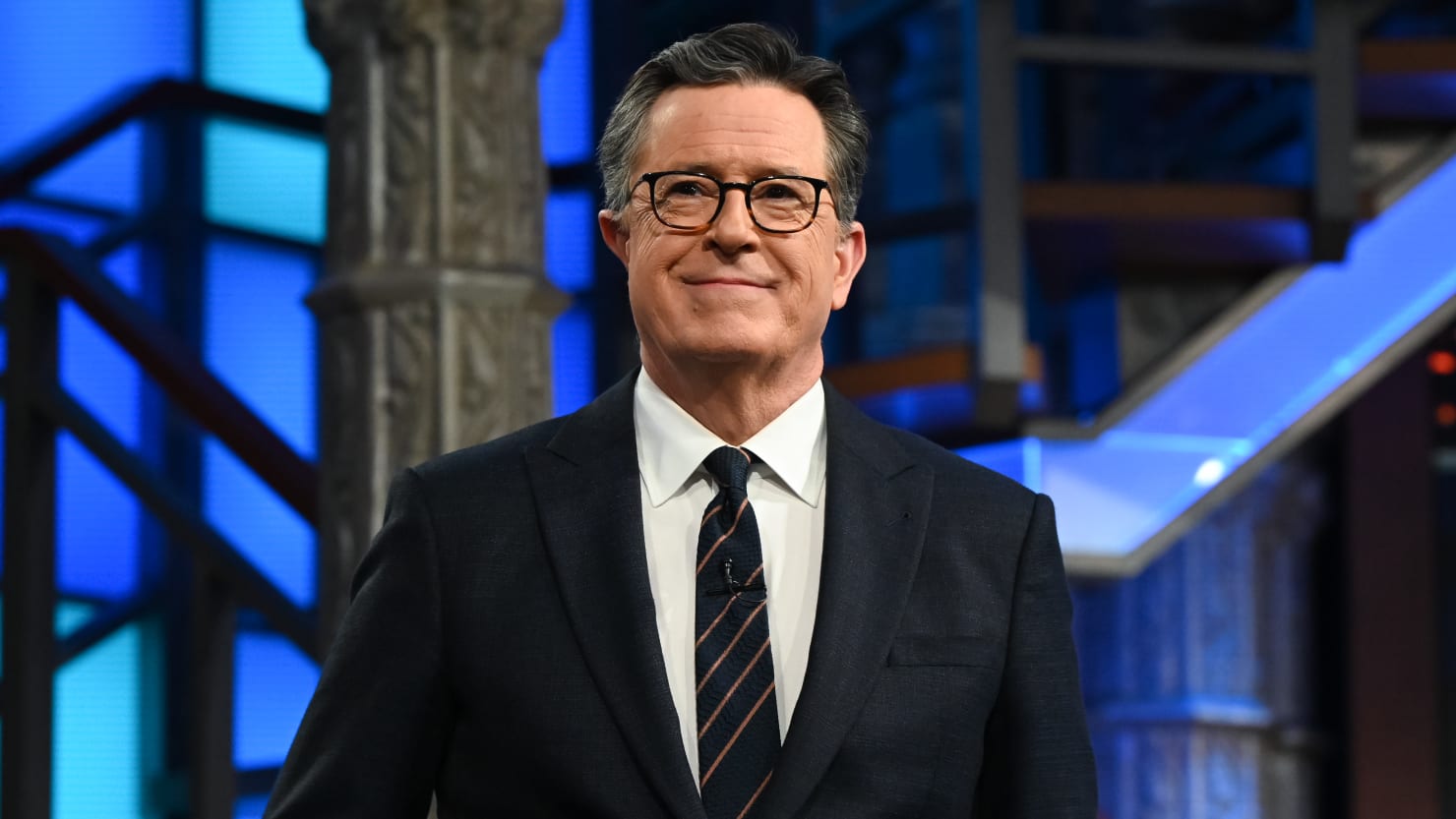Historically, late-night succession sagas tend to be grueling, competitive, and even prone to light espionage. But when former CBS chairman Les Moonves first tapped Stephen Colbert to take the Late Show reins after David Letterman, Colbert did the unthinkable and said “no.” Well—at least initially.
On Friday, Colbert and fellow late-night hosts Jimmy Kimmel, Seth Meyers, John Oliver, and Jimmy Fallon shared another episode of their podcast, Strike Force Five. With Letterman in the guest’s chair this week, Colbert took the opportunity to fact-check something Moonves allegedly told him back when he first courted the then-Colbert Report host for the role.
“I’d never thought I would host a talk show because I was an actor,” Colbert said. “Colbert Report was an act—it was basically a 10-year-long sketch.”
Nevertheless, he said, he found himself at the CBS boss’s New York City apartment in November of 2013. As Colbert told Letterman on Friday’s podcast, Moonves began “talking about how he likes the show and they’re thinking about 11:30 and what they’re gonna do after you.”
Letterman’s Late Show was itself a product of late-night’s messy history—specifically, NBC’s less-than-graceful effort to replace Johnny Carson as host of The Tonight Show. As New York Times journalist Bill Carter chronicled in his fundamental late-night history The Late Shift, Letterman—who was then host of Late Night, which aired after Tonight Show—was widely seen as Carson’s successor. At the time, Carter reported, Letterman’s strategy was to avoid campaigning for the job and instead prove himself through his work. But it was Jay Leno who, in 1986, got it in writing that the job would be his.
Ultimately, the job went to Leno, and Letterman moved to CBS—where his Late Show became a direct ratings competitor for Tonight and NBC.
In light of that chaotic history, Colbert said on Friday’s podcast that he’d asked Moonves in 2013 whether Letterman was aware they were speaking. “I can’t have this conversation if Dave doesn’t know that these conversations are going on,” he recalled saying.
According to Colbert, Moonves claimed that he and Letterman had previously discussed that “a day” would come when he would leave CBS—and that according to Moonves, Letterman had already said that day had arrived. So, they talked.
Weeks later, Colbert said, his manager confirmed that CBS wanted him for the role—they just needed to know if he wanted the job before they extended the offer. “And I said, ‘No, I don’t want it.’
“I said, the last thing I thought I’d do next was something harder than my last show,” Colbert continued—at which point, he said, his manager claimed the job would be “easier.” (He has since allegedly apologized.)
As Colbert explained, his mother had just died—and he’d only gotten into comedy because of her; he wanted to make her laugh after his father and brothers died tragically in a plane crash in 1974.
“Why am I doing this,” Colbert recalled wondering, “if Mom’s not here to call and say ‘I saw the show’ every so often?” In the end, he said, it was his sister’s smile when he told her about the opportunity that sold him on taking over the show, in 2015.
When asked for his perspective on how his Late Show replacement unfolded, Letterman didn’t fully refute what Moonves allegedly told Colbert—although he didn’t “recall ever talking to him about, ‘Please, start the search, begin talking to people.’
“I’m certain that that part didn’t happen,” Letterman told Colbert. “Now, he probably inferred that from our general conversations. But that’s a great story.”



